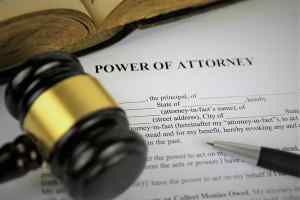
What is a Power of Attorney?
 A Power of Attorney is a legal document which grants a power to someone else (an “Attorney”) to act for you and is a legal authority for your Attorney(s) to sign off documents on your behalf. It is a very powerful tool – and one on which you should always take legal advice before it is prepared and signed.
A Power of Attorney is a legal document which grants a power to someone else (an “Attorney”) to act for you and is a legal authority for your Attorney(s) to sign off documents on your behalf. It is a very powerful tool – and one on which you should always take legal advice before it is prepared and signed.
The primary reason for any individual to make a Lasting Power of Attorney (LPA) is to ensure that someone is able to act on their behalf in the event of losing mental or physical capacity.
It is essential for everyone to have an LPA in place to cover that eventuality as, without it, if you lose capacity you will not be able to make an LPA. The resulting process is both time consuming and costly – for your next of kin to apply to the Court of Protection for a ‘Deputyship Order’.
There are different types of Power of Attorney. However, there is one constant with all Powers of Attorney, namely that you cannot create a Power of Attorney unless the Donor (the giver of the power) has the mental capacity to do so.
For persons in a vulnerable position, it is essential to have legal advice and mental legal capacity assessment undertaken. We can guide you through that process, provide assessments on legal capacity or arrange for medical assessment if that is deemed by us to be necessary.
The types of Power are:
Costs
Costs for preparing Powers of Attorney start from as little as £150 +VAT for drafting a General Power of Attorney and £350 +VAT for drafting and registering an LPA.
Where both types of LPAs are undertaken we reduce the charge to £450 +VAT for drafting and registering both.
For LPAs there are also fixed registration costs (currently £82 per LPA) that are payable to the Office of the Public Guardian. Most people ask us to not only prepare the LPA but to register it too. Our charges below include all advice and work involved in the preparation and registration processes and certified copies for future use.
| 1 x Lasting Power of Attorney | £350 +VAT | |
| 2 x Lasting Powers of Attorney | £450 +VAT | |
| 4 x Lasting Powers of Attorney | £850 +VAT | per couple |
| Office of the Public Guardian registration fees | £82 | per LPA |
Our Power of Attorney & Court of Protection team
We have team of lawyers with a wealth of experience in advising on all aspects of Power of Attorney and Court of Protection matters. We will explain the options available to you and guide you through the application processes. Experienced lawyers are available for appointments at all our office locations.
Usman Khan Solicitor and Head of Private Client
Johanna Knott BA SFE TEP Solicitor, member of STEP (the Society for Trust and Estate Practitioners) and Solicitors for the Elderly (Chalfont St Giles)
Lucy Pankhurst LLB Hons Solicitor (Stone)
Contact us
To make an appointment to discuss a Power of Attorney or Court of Protection matter with a member of our friendly and responsive legal team please contact us:
Tel: 01494 870075 (Chalfont office) or 01296 747151 (Stone office)
Or complete the form below
Share this page
We are accredited with





